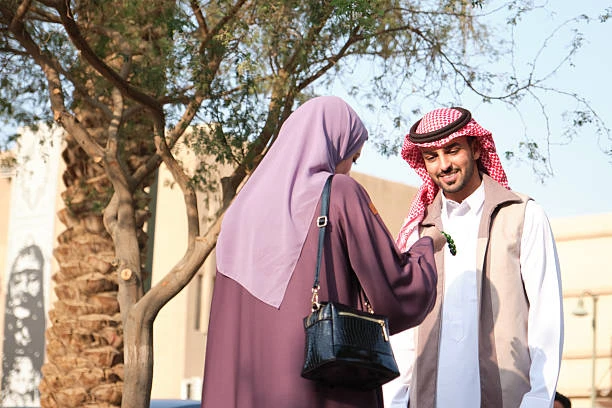You’ve unpacked your bags, arranged playdates for the kids, and sipped endless cups of Arabic coffee with other expat wives. But there’s a quiet voice inside asking: “Is this all there is?”
For years, Saudi Arabia’s strict labor laws made it nearly impossible for expat spouses to work. But in 2025, the Kingdom’s Vision 2030 reforms are opening doors—and your dreams of a career, financial independence, or simply using your skills again are within reach.
This isn’t just about rules and paperwork. It’s about reclaiming your identity, finding purpose, and showing your children that courage knows no borders. Let’s walk through this journey of Can Expat Wife Work in Saudi Arabia together—step by step, with hope and clarity.
Context and Significance
The demographic of expatriate spouses in Saudi Arabia represents a substantial pool of untapped professional talent. Many individuals in this category possess advanced degrees, specialized skills, and valuable work experience that could significantly contribute to the Kingdom's developing sectors. The professional reintegration of these individuals serves multiple purposes:
- Restoration of professional identity and autonomy
- Application of specialized skills within the Saudi Arabian economic ecosystem
- Financial contribution to household income and economic independence
- Demonstration of professional resilience and adaptability to dependents and family members
Research indicates that professionally engaged expatriate spouses report higher satisfaction levels with their international relocation experience. Furthermore, Saudi Arabia's economic diversification strategy actively seeks qualified professionals in education, healthcare, technology, and numerous other sectors where expatriate spouses often possess relevant qualifications and experience.
Regulatory Framework and Legal Considerations
2.1 Fundamental Visa Restrictions
It is essential to understand that a dependent visa, obtained through spousal sponsorship, permits residency in Saudi Arabia but does not authorize employment. Legal employment requires:
- A work visa (Iqama) with employer sponsorship
- A formal employment contract drafted in Arabic (with English translation provided)
This regulatory structure aligns with Saudi Arabia's Saudization policy, which prioritizes employment opportunities for Saudi nationals while permitting foreign workers to fill specialized positions where local expertise may be limited.
2.2 Regulatory Developments in 2025
Saudi Arabia's commitment to attracting international talent has resulted in several significant policy modifications implemented in 2025:
- Freelance Permission System: A structured framework allowing qualified individuals to provide services to clients while maintaining legal residency status.
- Digital Nomad Visa Program: A specialized visa category enabling residents to maintain employment with overseas employers while residing in the Kingdom.
- Enhanced Equal Employment Provisions: Legislative measures prohibiting gender-based compensation disparities.
For comprehensive and current information regarding these regulations, please consult the following official resources:
Structured Approach to Securing Employment
3.1 Employment Opportunity Identification
Successful job acquisition typically involves a combination of strategic networking and systematic opportunity monitoring:
Professional Networking Channels:
- Expatriate community platforms such as "Riyadh Expats Hub" and "Jeddah Mums"
- Industry-specific professional associations
- Educational institution parent networks
Digital Employment Resources:
- Bayt.com (Middle East’s top site).
- LinkedIn (Use hashtags: #HiringinKSA, #JobsForExpats).
- Organization-specific career portals
Institutional Direct Application:
- International educational institutions (e.g., International School Group Riyadh)
- Healthcare facilities (e.g., King Faisal Specialist Hospital)
- Multinational corporations with Saudi Arabian operations
For example: An expatriate spouse with foreign language teaching credentials secured employment at an international school in Riyadh after initially engaging through volunteer activities. This exemplifies how professional integration can begin through community involvement that subsequently transitions to formal employment.
3.2 Sponsorship Transfer Protocol
The transition from dependent status to employee status involves a defined administrative process:
- Employer Initiation: The prospective employer submits a work permit application through the Qiwa platform.
- Sponsorship Release: The current sponsor (spouse) executes a sponsorship release through the Absher system.
- Sponsorship Transfer: The employer assumes sponsorship responsibility.
- Medical Examination: Completion of required medical assessments at authorized facilities such as Seha Virtual Hospital.
It is advisable to discuss these administrative changes thoroughly with all affected parties to address potential concerns regarding household status adjustments.
3.3 Iqama Documentation and Compliance
The Iqama serves as the essential documentation authorizing both residency and employment. This identification includes:
- Professional designation (which must correspond to actual employment function)
- Employer identification information
- Validity period information (subject to annual renewal)
Financial Considerations: Approximately SAR 4,800 annually, with standard employer contribution of 50%.
Important Compliance Note: Employment termination requires the employer to cancel the Iqama within a 90-day period.
Alternative Professional Engagement Models
4.1 Remote Employment with Foreign Entities
Regulatory Status: Permissible when compensation is directed to non-Saudi financial accounts.
Prevalent Sectors: Digital content creation, graphic design, management consulting, educational services.
Engagement Platforms: Professional freelance marketplaces such as Upwork and Fiverr.
4.2 Freelance Services within Saudi Arabia
Regulatory Requirements: Legal provision of services requires obtaining a freelance permit through Monsha'at (approximate cost: SAR 2,000 annually).
Compliance Advisory: Providing unregistered services within Saudi Arabia may result in significant financial penalties or residency termination.
Practical Considerations and Adaptations
5.1 Cultural Integration in Professional Settings
Professional Attire: Employment environments, including private offices, maintain expectations of modest attire that may include abaya or appropriately conservative clothing.
Workplace Structure: Some organizations maintain gender-segregated work environments. Prospective employees should inquire about specific workplace configurations during the interview process.
Adaptation Strategy: Develop a professional wardrobe that satisfies both organizational expectations and personal comfort requirements.
5.2 Family Responsibility Management
Childcare Solutions:
- Domestic assistance (approximate monthly cost: SAR 1,500)
- Educational institution extended care programs
Schedule Accommodation: Many employers offer flexibility to accommodate family responsibilities.
Implementation Strategy and Support Resources
The transition to employment status requires systematic preparation and execution. Recommended initial actions include:
- Professional profile development and currency
- Strategic participation in relevant networking opportunities
- Consultation with established professionals in similar circumstances
Support Resources:
- Expatriate Women in Saudi Arabia (Facebook Community)
- Human Resources and Social Development Ministry Contact Center: 19911 (bilingual services available)
Conclusion
The evolving regulatory landscape in Saudi Arabia presents increasingly accessible pathways to professional engagement for expatriate spouses.
While administrative procedures remain complex, the systematic approach outlined in this guide provides a framework for navigating these requirements.
Professional reintegration offers significant benefits to individual expatriate spouses, their families, and the broader Saudi economic ecosystem.
Through careful preparation and strategic execution, expatriate spouses can successfully establish meaningful professional engagement within their host country.
FAQs
1. Can expat wives legally work in Saudi Arabia in 2025?
Yes, expat wives can work in Saudi Arabia if they meet the legal requirements, especially in education and healthcare sectors without changing their sponsorship.
2. Do expat wives need a work visa in Saudi Arabia?
In most cases, yes. However, for jobs in education and healthcare, expat wives on dependent visas may work without transferring sponsorship.
3. How can dependent wives apply for jobs in Saudi Arabia?
Eligible employers must register expat wives on the Ajeer platform with a valid job offer and required qualifications.







![What is The Expat Loans in Saudi Arabia:? [A Comprehensive Guide 2025]](https://humanonline.org//uploads/articles/image_1745306071.webp)
